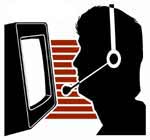Astronomy Hacks: Tips and Tools for Observing the Night Sky Gazing at the night sky is part of our nature. Whether for scientific and/or aesthetic purposes, we humans are fascinated by the enormity and beauty of the heavens. The authors explain how astronomy gives them an "unchanging framework that places us in context within the universe. We look at the Great Orion Nebula, for example, and realize that the light we see tonight began its journey about 1,550 years ago, when the Roman Empire was in its final days." This book is a comprehensive (almost 400 pages) guide to getting the most out of your nocturnal viewings. It will be useful for the complete amateur, the hobbyist and even offer some tips for the seasoned astronomer. Don't be frightened by the word "Hacks" in the title. Like other O'Reilly Hacks books, this is not a compilation of illegal or unethical computer programs. It is a reclaiming of the original meaning of the word "hacks." Before the media started using the term hackers for everyone from mischievous teens to dangerous criminals, a Hacker was someone who used a creative workaround or discovered a more elegant, or quick-and-dirty, solution to a problem. You probably won't read this book from cover to cover. Depending on where you are starting from and where you want to go, you will find sections that pertain to your interest and experience. For example, early in the book is a guide to choosing binoculars and telescopes. I like the hack that explains how to measure your "entrance pupil size" using Allen wrenches. This will suggest the optimal telescope for my eyes.
The book also gives tips, guidelines and even etiquette for venturing out alone or with others on an observation trip.
There is some solid information as to how our eyes function in the dark. If you are eager to see stars, you can skip some of this but I found it interesting. Especially the explanation of why all cats are gray in the dark. After about 100 pages you will get into star identification and cataloging. It begins with the Bayer Catalog, (Johann Bayer published the first comprehensive star atlas in 1603) and then includes more modern catalogs. The authors provide lists of, say, the 88 modern constellations and include a pronunciation guide so you don't sound like a newbie. As an "urban observer" (about 8 miles from downtown), I have different equipment needs and techniques than a country dweller. There is a whole section dedicated to Urban Observing Skills. For the adventurous, there is a game plan to complete a Messier Marathon (seeing and logging all 110 Messier Objects in one night. Astronomy has long been linked to photography and there are a lot of hacks dealing with taking pictures of the images you observe. Those who have gone beyond the beginner stage will appreciate all the hacks and modifications you can make to your telescope and other equipment to improve your experience. And the book concludes with hacks to make your PC a better tool in your observations. This book provides a nice starting point for people interested in the night sky. But it's not a beginner's book. As your skills and interest grow, you will continue to uncover new and useful ideas from this book.
Great Lakes Geek Rating:4 out of 5 pocket protectors.
Reviewed by Entreprenerd Dan Hanson, the Great Lakes GeekWhat are you reading? Let us know at dan@greatlakesgeek.com
Top of Page
Back to Great Lakes Geek Book Reviews
| 



